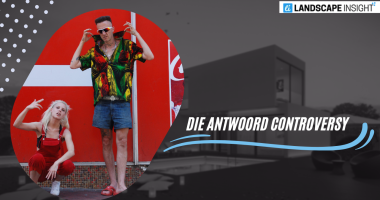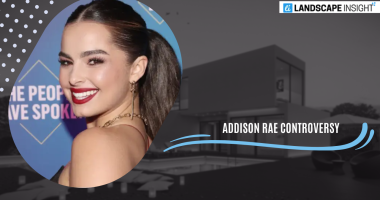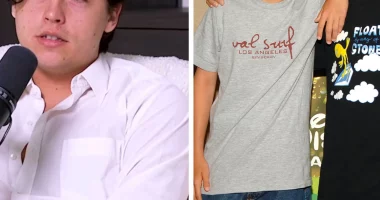BBC is a highly respected media outlet throughout the world. They’re the national broadcaster of the United Kingdom and also the largest broadcaster in the world by number of employees, employing over 22,000 staff in total, of whom approximately 19,000 are in public-sector broadcasting.
However, with such an imposing position, they are bound to be caught in controversies. The media outlet is once again in a controversial spot and this time it is due to a two decade old documentry on India’s current Prime Minister- Mr. Narendra Modi.
About The Details Of The Controversy
Back in 2002, there had been a crucial period for India. In the state of Gujarat, there were large scale communal violence episodes triggered by a very unfortunate incident. The riots had resulted in the death of more then 1,000 people, most of which were Muslim.

Two decades ago, Modi was the chief minister of Gujarat. During that time, 60 Hindu pilgrims were killed when their train carriage was set alight. Although the reason of the fire was unclear, the Muslim community was blamed.
The enraged Hindu mobs targeted the Muslims across the state- attacking their houses, setting them on fire and killing them as well. More than 1,000 people died, majority of which were the Muslims.
In the aftermath, Modi’s state government was accused of complicity in the violence by encouraging the Hindu mobs and directing the police to stand aside as Muslim households were attacked.
The allegations of his role in the communal violence have dogged Modi for years, leading to him being banned from the US owing to “very serious” doubts over the part he had played.
The documentary, India: the Modi Question, is a two-part series examining the rising tensions between the Indian prime minister and the country’s Muslim minority that aired in the UK in January.
The first part of the film revisits these allegations dating back to 2002. The ghost of Modi’s past that still conitnues to haunt him.
The documentary also covers the way in which Modi’s government has been trying to pursue Hindu-centric policies. They have been accused of “targeting and discriminating against India’s 200 million Muslims as part of a rightwing religious nationalist agenda that is moving India away from its secular foundations.”
In 2012, Modi was cleared of complicity in the violence by a Special Investigation Team (SIT) appointed by the supreme court of India, after they could not find adequate evidence, a verdict that was upheld in 2022. After he was elected as prime minister in 2014, Modi’s US visa ban was lifted.
The latest illicited discussions are being done to claim that Modi was involved in holding back police from saving the people. Seemingly to allow the Hindus to harm the Muslims.
The Response of The Indian Government
The Modi government responded swiftly and directly to the BBC documentary’s biased portrayal of India. During a press conference held by the foreign ministry, an official spokesperson criticized the network for its lack of objectivity and colonial mindset while accusing them of pushing an anti-government agenda.
Furthermore, Kanchan Gupta from the Ministry of Information and Broadcasting denounced it even more forcefully as “propaganda” that was disguised as a documentary meant to harm India’s image globally.
Subsequently, in utilizing emergency laws aimed at blocking online content critical of their governance over this past year – something not new – authorities banned links and clips associated with this particular film.
Notably high profile due to significant international media coverage is how it played out on YouTube or Twitter specifically.
As a professional writer, I would rephrase the given text as follows: The BBC faced allegations of having an anti-Modi bias from several BJP politicians when they revisited two-decade-old dismissed allegations.
The supreme court received a petition to ban the BBC’s operations in India but was eventually rejected. Consequently, student groups attempted screenings of the documentary in protest but were met with arrests and violence by rightwing groups who labeled them “traitors.”
Despite this censorship, the BBC defended their work and stated that it adhered to high editorial standards. Additionally, Indian tax authorities conducted a raid on 14 February at the entrance of New Delhi’s BBC office building.
Shortly thereafter, emergency laws were enforced by the government to prohibit sharing of links and clips from the documentary online. Both YouTube and Twitter complied with this ban.
This is not a new occurrence in the past year where critical online content against the government has been blocked using these laws; however, it was most notable in this case. Numerous BJP politicians accused BBC of having an anti-Modi agenda when they revisited allegations that had been dismissed by courts nearly two decades ago.
The BBC has stood by the documentary, calling it “rigorously researched according to highest editorial standards”.
Why Is The Government So Apprehensive Of The Documentary?
As a professional writer, I would rephrase the text as follows: The timing of this documentary is highly sensitive for India given its current position on the world stage.
As host of the G20 and self-proclaimed “mother of democracy”, India’s growing influence is increasingly sought after by Western powers seeking to collaborate with Modi’s government on geopolitical and environmental issues.

Nonetheless, while Modi’s international prominence may be popular at home, recent allegations surrounding past human rights abuses and ongoing discrimination against minorities in India have been raised by BBC documentaries that accuse trading partners such as the US, UK, and Europe of turning a blind eye.
These revelations could complicate future diplomatic relationships between these nations if not addressed appropriately.
As a professional writer, I would rephrase the text as follows: There are allegations in India that former colonial powers in the West, who may feel threatened by India’s ascension, are using past accusations to impede its growth.
With general elections scheduled for next year, it is a crucial moment for Prime Minister Modi and his government. While he remains immensely popular among the country’s Hindu majority (who account for 80% of the population), criticism from abroad has not been well-received by his administration.
This includes rebukes aimed at climate activist Greta Thunberg and singer Rihanna – both supporters of protesting farmers opposing Modi’s policies – which led to critical responses from India’s foreign ministry officials.
The Implications for The BBC
The BBC has been targeted by pro-government media outlets and influential right-wing social media accounts in India for allegedly showing bias in their documentary about Indian Prime Minister Narendra Modi’s treatment of Muslims.
While the film received positive feedback from UK-based sources such as The Guardian, it also faced criticism from some quarters. Conservative MP Bob Blackman, who is closely associated with Modi’s government and was awarded India’s highest honor in 2020, dismissed the documentary as a “hatchet job.”
Additionally, House of Lords member Rami Ranger wrote to the head of the BBC demanding to know if any Pakistani-origin staff were involved in creating this supposed nonsense. Labour MP Chris Elmore condemned Ranger’s comments regarding Pakistani journalists as being racially charged and deplorable while calling his pressure on the BBC unacceptable behavior.
On Tuesday, the tax department office of the Indian government sent over a dozen officers to conduct a “survey” on BBC’s offices in Mumbai and New Delhi. The investigation is related to allegations of tax evasion and resulted in phones and laptops being confiscated while sealing off their offices.
This action has been perceived as retaliatory by many parties. In response, the BBC released a brief statement stating that they are cooperating with authorities’ inquiries. However, various human rights organizations and press bodies have strongly criticized these raids for potentially violating freedom values upheld by India’s democracy.
Beh Lih Yi, Asia coordinator for the Committee to Protect Journalists stated that this type of harassment against critical news outlets under pretenses must stop immediately.
Conclusion
The BBC has released documentary on Modi, India’s prime minister, in order to prove that he has a anti-Muslim agenda. However, the response from the public is mixed.
Several people have supported whil many respected delegates have called out the media broadcaster for such irrational blames. The government also has been quick with responses that shun any possibility of such shameful acts.
Ishvary is a high school student who is very passionate about writing. She has been writing since she was a teenager, and she is currently assessing her level of writing ability. She enjoys spending time reading books and poems and is a passionate reader and music lover. You can reach Ishvary at –[email protected] or on Our website Contact Us Page.








